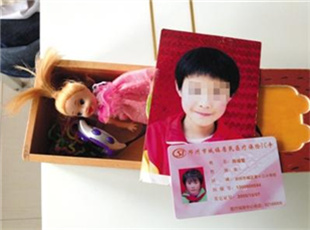Accidental injury kills 50,000 children each year
chinagate.cn by Fan Anqi, August 3, 2015 Adjust font size:
Chen’s hometown, Rengang Village, lies 30 kilometers away from Dengzhou. Apart from some pregnant women, the residents there are elderly people and children. Grandparents taking care of four or five “left-behind” kids is common in the village. Villagers say that there are not even enough young men to help carry coffins when funerals arise, since the men are all gone for work.
Dengzhou has a large population of left-behind children, whose parents are working in other places. Preliminary estimates show that there are around 130 thousand left-behind children now living in Dengzhou, accounting for nearly 1/13 of the local population.
Chen Ruixue’s story further stresses problems concerning the safety of unattended left-behind children and the lack of preventative measures against drowning, traffic accidents, poisoning, etc. The trend of accidental injuries among left-behind children is increasing nowadays. Beijing News reported that nearly 50,000 children die annually of accidental injuries, most of whom are left-behind.
It has now become a troublesome social issue for governments, schools, as well as families of left-behind children – to take counter-measures and prevent such happenings effectively and to improve security situations for kids.
A growing trend towards rural students attending downtown schools has resulted in a sharp decrease in the number of rural elementary schools. Village primary schools usually have no more than 20 students, while downtown schools are crowded with attendees. Dengzhou’s urban area now has 16 public primary schools and 2 private schools, each class containing 80 to over 100 students, one fourth of which are left-behind children. A majority of left-behind children face difficulties in keeping up with other students in a school setting, as well as, fitting in with other children, often resulting from typical shy and introvert characteristics. The reasons fueling such a phenomenon include more than just parents’ lack of presence.
Dengzhou has invested over 120 billion yuan (US$19.33 billion) facilitating the care of left-behind children. Nearly 300 schools in rural areas have been reconstructed, and among them, 97 of them have been transformed into boarding schools where 70% of the left-behind children can be taken care of.
The task is still a challenging one for officials in Dengzhou. An official told Beijing News, that once students leave the schools, it is extremely difficult to assure their safety. What’s more, as a grass-root government, they lack the money and means to govern such a vast situation adequately. In the end, an effective prescription for solving left-behind children’s security problems remains to be found.


